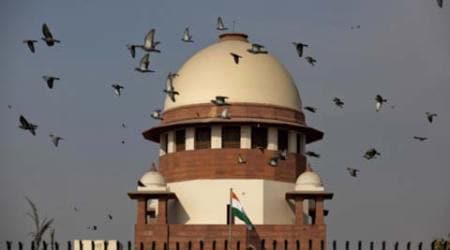 The crime of sedition is a colonial relic drafted to protect a government of occupation imposed on a restive population.
The crime of sedition is a colonial relic drafted to protect a government of occupation imposed on a restive population.
The sedition law has now been turned against 15 Dalit protesters in Karnal, who had demanded the release of four arrested for a murder committed during a clash between castes at a village in Ambala three months ago. They are accused of disturbing the peace and speaking against the government, and the 15 were identified because they briefly spoke with Haryana Chief Minister Manohar Lal Khattar in the course of a six-day sit-in protest in Ambala. They may be guilty as charged, but even if they are, their crime cannot possibly tantamount to sedition. Even the most colourful threats directed at a chief minister in the heat of the moment cannot possibly be read as a national security issue and a call to destabilise the government of India. At this rate, it would become fashionable to slap sedition charges on petty thieves and pickpockets, on the ground that even if marginally, they too wage war on the state by destabilising, in the tiniest measure, the lives of citizens.
The crime of sedition is a colonial relic drafted to protect a government of occupation imposed on a restive population. Some of the finest leaders of the freedom struggle were charged with it, and wore it like a badge of honour. But it is out of place in a democratic polity, and elected governments which use it, and their police and civil administrations, should be ashamed of themselves for behaving like colonial powers. The judiciary is not above reproach either, for retaining Section 124A of the Indian Penal Code (which defines sedition) on the statute books, despite years of credible and reasoned public requests for its repeal.
In the past, at least the authorities have taken the trouble to search for a fig leaf to justify application of the law. The rural doctor and activist Binayak Sen was accused of association with insurgents. The cartoonist Assem Trivedi had used national symbols creatively in his work. Arundhati Roy had articulated a position on Kashmir which was not exactly in line with governmental expectations of unity and integrity. And, most colourfully, JNU Students’ Union leader Kanhaiya Kumar had called out loud for azadi. But the development in Karnal is completely arbitrary, on par with the proforma slap that the policeman administers to the habitual offender in the movies. Finally, we have reached the limits of absurdity in the liberal administration of sedition charges. Let this be the test case that the nation has been waiting for. A confident democracy should not require legal munitions of colonial vintage to menace students, activists and marginalised communities.

